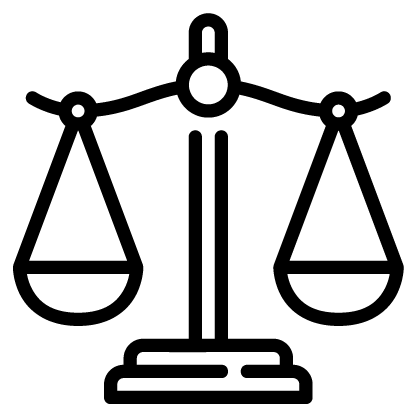Privacy and rights to information
Privacy can be understood as the right to keep your personal sphere free from interference from others. The right to privacy is of intrinsic importance to your basic dignity and fulfilment, both individually and as a member of society.
Privacy laws
There are a number of laws, regulations, and principles that regulate how organisations deal with information they hold that identifies you. The laws which apply depend on the type of organisation, and the type of information.
Commonwealth law
Federal privacy law applies to the Australian government and all businesses and not-for-profits with an annual turnover of more than $3 million. It also applies to some smaller entities engaged in certain types of business activities, as well as to some specific acts or practices of otherwise uncovered entities.
Federal law is administered by the Office of the Australian Information Commissioner (OAIC), where you can find detailed information about your rights and how to make a complaint.
State law
New South Wales (NSW) privacy law applies in NSW and addresses 2 groups of information – personal information and health information. The law that governs personal information applies to NSW public sector agencies, including government departments, local councils, and universities such as Usyd. The law related to health information applies to all these agencies, as well as public and private sector health organisations, health service providers and large businesses that store health information.
This legislation is administered by the Information and Privacy Commission NSW (IPC), who provide detailed information about your rights and how to make a complaint.
Protecting your privacy
Technology has made identity theft and related crime a big industry. Many people’s personal information is easily available online, and creating forged or fraudulent documents can be relatively easy. Sometimes all it takes are some basic facts about you, such as your name, address, date of birth, bank account and/or credit card numbers, or passwords, for your identity to be stolen.
Identity thieves use stolen identities to access their victims’ accounts, take out loans or obtain credit in the victims’ names, as well as to scam other people, commit crimes and evade the police. This can result in your money being stolen, your credit being ruined, and your involvement in police investigations.
- Read the government’s tips to protect your privacy.
- Find information about the latest online scams that aim to get your personal information.
Recording people without permission at Usyd
Many postgraduates want to record other people for study purposes. However, the Surveillance Devices Act 2007 (NSW) states that it’s against the law in NSW to record someone without their knowledge and consent, unless one of the lawful exceptions applies. If you illegally record someone, such as a supervisor, lecturer, tutor, any Usyd staff member, or another student, you can face criminal prosecution.
It’s also against the law to have an illegally obtained recording of a conversation in your possession. This means that if you record someone without telling them and obtaining their consent before you make the recording, you could also face criminal charges.
If you want to document a meeting with someone who doesn’t consent to being recorded, you can take notes either during or immediately after the meeting, and then date and sign your notes. You can also ask for any meeting minutes to be emailed to you.
Rights to information
Your rights to information are governed by either federal law or state law, depending on who holds the information you want to access.
How to access your personal information
Commonwealth government agencies
Federal law applies to Australian government agencies and their contracted service provision agencies. Find out about your rights and how to access the information held by these agencies.
NSW public sector agencies (including Usyd)
NSW law applies to all NSW public sector agencies including government departments, local councils, and universities. Find out about your rights and how to access your personal information.
To comply with the law in this area, Usyd has its own policies and procedures in place. Find out about accessing information held by the University.
Further information
If you need further advice or assistance with a privacy complaint or with accessing your information, contact our Legal Service for help.
Disclaimer
This information is current as at December 2023 and is intended as a guide to the law as it applies to people who live in or are affected by the law as it applies in NSW. It does not constitute legal advice.
Download this article as a Word document
Download this article as a PDF
Written by SUPRA Legal Service December 2023.
Need help?
Our casework and legal services are here for you.

Postgraduate Advocacy Service
Our caseworkers can help with any problems you face while you study at Usyd, from academic appeals to renting.


Stay in touch with us